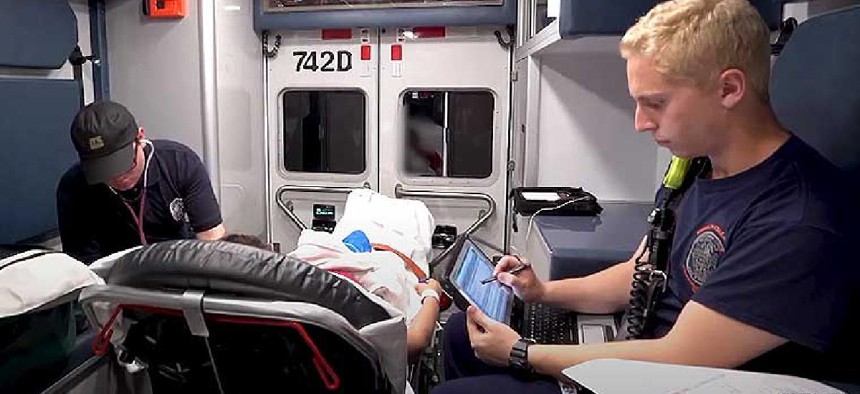FirstNet reinforces COVID-19 test facilities, front-line health workers


Connecting state and local government leaders
FirstNet, the nationwide public-safety wireless broadband network, is expanding services to help responders during the coronavirus pandemic.
FirstNet, the nationwide public-safety wireless broadband network, is expanding services to help responders during the coronavirus pandemic.
AT&T, the company charged with building out and managing the network, is rolling out mobile cell towers to local communities so local, state and federal responders can communicate over one network. As of April 13, the company reported it had 19 portable cell sites currently operating and had deployed more than 42 during the response to COVID-19 to bolster coverage for FirstNet customers.
“[We’re] making sure that pop-up test facilities and drive through test centers and hospitals that are being placed in new locations have the right coverage and capabilities that they need to communicate,” Jason Porter, AT&T’s senior vice president and FirstNet program manager, said in a video.
The company is also offering three months of free FirstNet service for frontline nurses and physicians.
Health care workers who are new subscribers to FirstNet are now eligible for three months of free service and can get a $200 credit when activating a FirstNet Ready smartphone on a new FirstNet Mobile-Responder plan. Those already on a plan will automatically receive the three-month service credit on a smartphone or tablet line of service, AT&T officials said.
FirstNet is also working with Centene Corp., a multi-national healthcare enterprise, to expedite the rollout of FirstNet for primary care providers in rural and underserved communities suffering financial hardship as a result of the COVID-19 pandemic.
Centene will be extending grants to assist with the upfront investment costs of new devices and equipment. Pilots starting this month in Arkansas, Kansas, Georgia and Mississippi aim to support Federally Qualified Healthcare Centers and independent practices serving over half a million patients. The program will expand into additional states over the next few months.
NEXT STORY: Why the coronavirus response may unleash 5G




